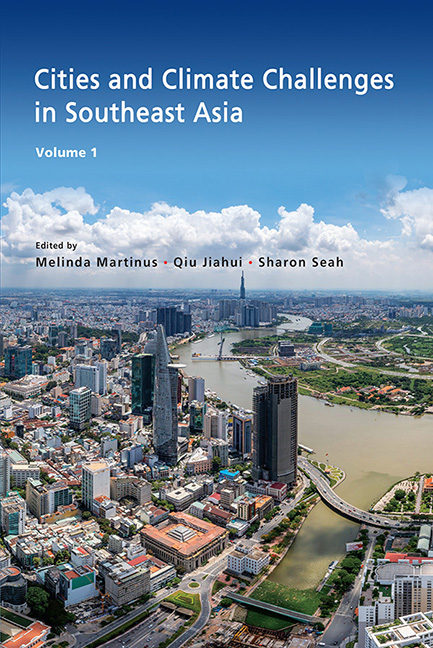10 - Leveraging De-risking Instruments to Scale-up Adaptation Finance in Jakarta
Published online by Cambridge University Press: 09 January 2024
Summary
Summary:
■ The world’s megacities are vulnerable to climate risks; hence investing in climate adaptation is critical.
■ Jakarta, the capital city of Indonesia, also has a growing need for adaptation finance, but it cannot always rely on public finance’s political uncertainty and inefficiency.
■ This study examines Jakarta’s current public finance situation for climate adaptation and suggests practical recommendations for leveraging the city’s public finance to spur private investments in urban adaptation projects.
■ Jakarta can increase its capacity to meet its urban adaptation goals by leveraging de-risking instruments and creating bankable project pipelines to stimulate private finance for climate adaptation projects in the city.
■ Jakarta should investigate various de-risking mechanisms such as low-cost lending instruments, fiscal incentives, performance-based instruments, risk insurance, and technical assistance.
INTRODUCTION
Megacities are pivotal for a country’s innovation and overall economic progress. Meanwhile, cities are often confronted with problems such as rapid population growth and increasing environmental risk. Jakarta, the largest megacity in Southeast Asia and the capital of Indonesia, is no exception. It is one of the most vulnerable megacities to climate change. Located in a low-lying coastal area, it faces a range of climate-related impacts such as flooding, sea-level rise, and storm surges (Varrani and Nones 2018; Mario 2011). Low adaptive capacity further exacerbates these impacts, affecting the country’s emerging economy. Looking at one of the worst floods on record that struck Jakarta in February 2007, the disaster displaced over 200,000 people, affected 60 per cent of the territory and incurred an estimated US$1 billion in damage (Akmalah and Grigg 2011; Texier 2008). This phenomenon raises the question of whether urban management strategies and financing for Jakarta’s urban adaptation are adequate against a long-term changing climate and its rapidly growing economy.
For a climate-vulnerable urban area such as Jakarta, there is not enough data or evidence to highlight the latest trends in domestic public or private finance flows for financing adaptation efforts. At the country level, however, data suggests that adaptation finance is relatively low—a decade of data from 2009 to 2018 shows that only 2 per cent of development finance in Indonesia flows to adaptationrelated efforts (Atteridge et al. 2019).
- Type
- Chapter
- Information
- Cities and Climate Challenges in Southeast Asia , pp. 140 - 156Publisher: ISEAS–Yusof Ishak InstitutePrint publication year: 2023

